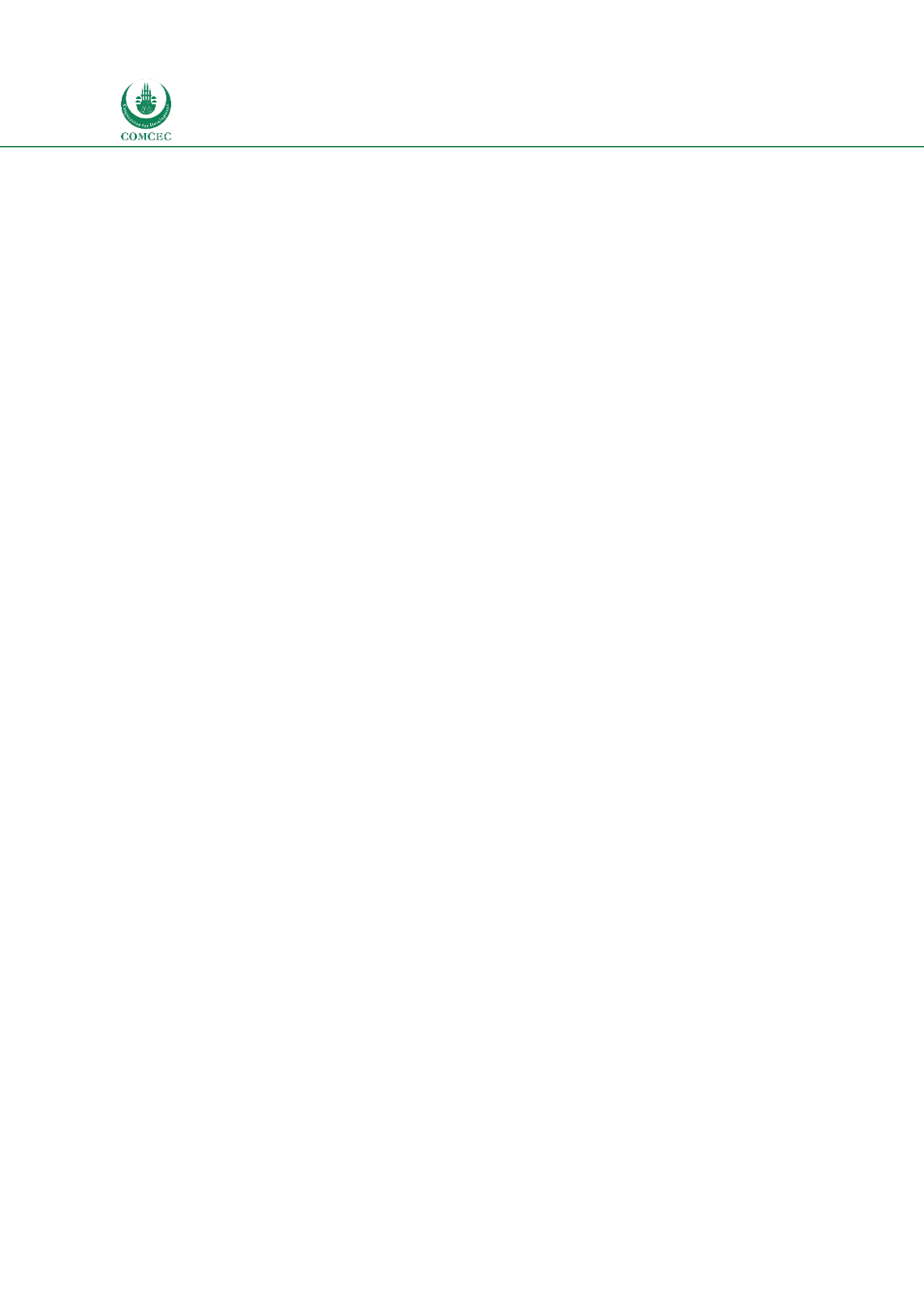

National and Global Islamic Financial Architecture:
Problems and Possible Solutions for the OIC Member Countries
86
includes issues related to the Shariah Committee and operational matters such as Shariah
review, audit, research and risk management.
One of the ways in which the market efficiency can be increased is to use standardized
contracts and documents among the financial sector's stakeholders. In this regard, BNM’s SAC
has approved Shariah parameters for various contracts. Other than approving Shariah
parameters for eight contracts (
murabahah, mudarabah, musharakah, wadiah bai al inah,
ijarah, tawarruq
and
hibah
), SAC has issued exposure drafts of several others contracts such as
istisna, wakalah, kafalah
and
wad
(BNM 2014: 89).
The Shariah Advisory Council (SAC) was established in 1996 at the SCM to oversee Shariah
issues related to Islamic capital markets. Among other things, the Securities Commission Act
(SCA) 2015 (Part IIIC) defines the various functions of the SAC and the method of appointment
and qualifications of the members of the SAC. Similarly, the SCA 2015 (Part IIIC, 31ZI)
stipulates the SAC at SCM will have ‘authority for ascertainment of the application of Shariah
principles for the purposes of Islamic capital market business or transaction.’ SCM issued a
regulatory note on ‘Registration of Shariah Advisers Guidelines’ in 2009 to ensure the quality
of Sharia advisors engaged with financial institutions dealing with capital markets.
The SAC at SCM plays an important role in the development and innovation of new Islamic
products in the Malaysian capital market by providing advice on Shariah principles and
compliance (CIBAFI et. al 2015: 232). The criterion to screen stocks was changed in 2013 to
align with global Shariah standards (CIBAFI 2015: 216). The new approach adopts two-tier
screening, one at the industry level to discard companies involved in activities considered
impermissible and the other one using financial ratios to vet companies as Shariah compliant.
The goal of the revision is to enhance the competitiveness of Malaysia's stocks and mutual
funds and increase the international appeal of Islamic capital market products and attract
capital inflows from overseas.
4.4.4. Liquidity Infrastructure
BNM has introduced various measures to support liquidity management in Islamic finance.
Other than a sound regulatory, supervisory and Shariah framework, other initiatives of
liquidity infrastructure include introducing a variety of Shariah compliant liquidity
instruments, establishing infrastructure that facilitates the issuance of Islamic financial
instruments, promoting an active secondary market for Islamic financial securities and
instituting a strong financial safety-net (BNM 2011: 62). BNM issued
Guidelines on Islamic
Inter-bank Money Market (IIMM)
in December 1993 and the IIMM was introduced in January
1994. Various instruments are used to manage liquidity of Islamic banks in IIMM. The
instruments include
Mudharabah
Interbank Investment (MII),
Wadiah
Acceptance,
Government Acceptance Issue (GII), Bank Negara Monetary Notes-I (BNMN-i), Sell and Buy
Back Agreement (SBBA), Cagamas
Mudharabah
Bonds (SMC), When Issue (WI), Islamic
Accepted Bills (IAB), Islamic Negotiable Instruments (INI), Islamic Private Debt Structures, Ar-
Rahnu
Agreement (RA-i) and
Sukuk
BNM
Ijarah
(SBNMI) (BNM 2016b). In terms of safety net,
BNM also has lender of last resort facilities for Islamic banks (BNM 2011: 63).
IFSA 2013 also strengthens the legal framework for the operations of Islamic money markets.
Article 153 of the act entitled ‘Prohibited conduct in Islamic money market and Islamic foreign
exchange market’ requires that conduct and activities in these markets should not contradict
















